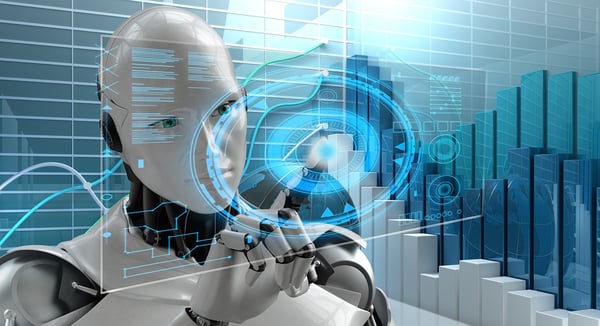AI in Dermatology: Implications For Patient-Doctor Relationships
Since early ideas about the development of intelligent machines were discussed in the 1950s, the field of artificial intelligence (AI) has experienced exponential growth. Currently, the use of machine-assisted procedures has expanded to virtually all industries, including the field of dermatology. This article will discuss the applications of artificial intelligence in dermatology while presenting its implications for the patient-doctor relationship.

Dermatology has benefited from the incorporation of AI technologies in smarter analyses of patient data, improved clinical decisions and more efficient treatments.3,4 Perhaps the most remarkable improvement comes from the utilization of intelligent dermatology software, such as DermEngine. These programs offer tools, such as Visual Search, that allow for better dermatoscopic analysis. By comparing patient images against large databases of identified lesions, they help support clinical decisions in detecting potentially malignant spots.5
The rapidly changing nature of AI makes it an interesting player to contribute to the upcoming challenges experienced in dermatology, particularly from a technical viewpoint. The streamlining of clerical activities within EMR systems and the proper handling of big data connected to patient clinical cases are among the clearest ones.6 However, despite the positive technical aspects of this technology, there are also concerns about the effects that AI poses on human relationships in healthcare environments.
3. Can AI replace dermatologists?
In other words, do these trained machines have the capacity to become totally independent, outperforming human behavior in such complex activities? Despite its many advantages, the need for human interaction in clinical consultations remains imperative.4 This not only responds to the need for human input in data analysis and result interpretation, but also for the emotional component of human relationships. Actions driven by compassion, kindness, altruism and a spirit of service are irreplaceable by AI. The intrinsic human nature of these traits seems to draw the line on the penetration of AI-assisted practice in the dermatologist’s office.
Research and development initiatives are inherent to human nature as new discoveries are shaping the world into a technology-driven place. Such is the case of dermatology, where AI has brought advantages mainly in data handling and technical process streamlining. However, it’s clear that human intervention is still a requirement. Proper interpretation of data is crucial, but also the emotional side of patient-doctor relationship in serving fellow human beings. Working together, AI has the potential to bring many enhancements to daily practice by complementing dermatologists’ activities rather than competing with them.
-The MetaOptima Team
Would you like to remain connected with your patients & colleagues while providing streamlined care and receiving a new source of income? sign up for a demo today!
- https://bmjleader.bmj.com/content/early/2018/06/01/leader-2018-000071
- https://www.frontiersin.org/articles/10.3389/frobt.2017.00051/full
- https://jamanetwork.com/journals/jamadermatology/article-abstract/2697219
- https://jamanetwork.com/journals/jama/article-abstract/2666717
- https://www.nature.com/articles/nature21056
- https://www.nature.com/articles/s41746-017-0012-2
Topics: Dermatology Artificial Intelligence Artificial Intelligence in Dermatology Dermatology EMR Dermatology Software Dermatology EMR Software Cloud Based EMR Dermatology EMR Solution EMR Solutions Dermatology EMR System






